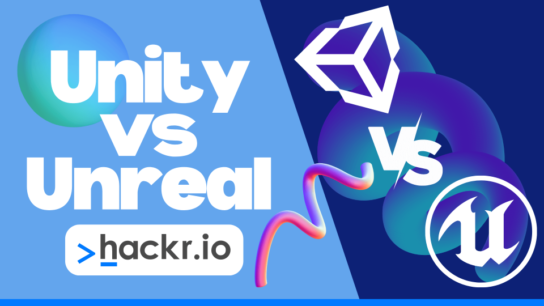
The Unreal Engine 4 logo presented during the pre-load of the game.
Unreal Engine 4 is the current release of the Unreal Engine developed by Epic Games. Unreal Engine 4 was the used by DONTNOD Entertainment to develop the game VAMPYR.
History[]
Creation[]
The Unreal Engine is a game engine developed by Epic Games, first showcased in the 1998 first-person shooter game Unreal. Although primarily developed for first-person shooters, it has been successfully used in a variety of other genres, including stealth, MMORPGs, and other RPGs. With its code written in C++, the Unreal Engine features a high degree of portability and is a tool used by many game developers today.[1]
Unreal Engine 4[]
On August 17, 2005, Mark Rein, the vice-president of Epic Games, revealed that Unreal Engine 4 had been in development since 2003.[2] Until mid-2008, development was exclusively done by Tim Sweeney, CEO and founder of Epic Games.[3] The engine targets the eighth generation of consoles, PCs and Tegra K1-based[4] devices running Android announced in January 2014 at CES.
In February 2012, Mark Rein said “people are going to be shocked later this year when they see Unreal Engine 4”.[5] Unreal Engine 4 was unveiled to limited attendees at the 2012 Game Developers Conference,[6] and video of the engine being demonstrated by technical artist Alan “Talisman” Willard was released to the public on June 7, 2012 via GameTrailers TV.[7][8] This demo was created on a PC with triple GeForce GTX 580 (tri SLI) and can be run on a PC with a GeForce GTX 680.[9]
One of the major features planned for UE4 was real-time global illumination using voxel cone tracing, eliminating pre-computed lighting.[10] However, this feature has been replaced with a similar but less computationally-expensive algorithm prior to release for all platforms including the PC because of performance concerns on next-generation consoles.[11] UE4 also includes new developer features to reduce iteration time, and allows updating of C++ code while the engine is running. The new “Blueprint” visual scripting system (a successor to UE3’s “Kismet”[12]) allows for rapid development of game logic without using C++, and includes live debugging.[13][14] The result is reduced iteration time, and less of a divide between technical artists, designers, and programmers.[15]
On March 19, 2014, at the Game Developers Conference, Epic Games released Unreal Engine 4, and all of its tools, features and complete C++ source code, to the development community through a new subscription model. Anyone can sign up for UE4 for Windows, OS X, iOS and Android by paying $19 per month, plus 5% of gross revenue resulting from any commercial products built using UE4.[16][17] CEO and founder of Epic Games, Tim Sweeney, said that the new business model is a reflection of changes in the industry. Epic Games has traditionally made its Unreal Engine available to large AAA game development teams at a cost of millions of dollars but as the industry has evolved, Epic has had to “really rethink our whole business as to how we make the engine available to teams.”[18][19] “Looking at the new shape of the industry now, we realize that’s an outdated tool,” Sweeney said. “Looking at the possibilities for the engine, we started from scratch and thought ‘How can we make the engine available to more people?'”.[20] According to the Unreal Engine website, subscribers to the engine will be able to cancel and renew their subscription at any time. They will be able to retain access to UE4 tools, but will not receive access to future releases of Unreal Engine 4.[21]
On September 3, 2014, Epic Games launched the Unreal Engine Marketplace, allowing UE4 subscribers to buy and sell community-created content of all shapes and sizes.[22] In addition to all of the previously released free content, the new marketplace came with a variety of asset packs including full-scale environments, props, characters, sounds, materials, animated meshes, prefab C++ code and a number of other asset types as well as free demos and tutorials.[23][24]
On September 4, 2014, Epic released Unreal Engine 4 to schools and universities for free, including personal copies for students enrolled in accredited video game development, computer science, art, architecture, simulation, and visualization programs.[25][26]
On February 19, 2015, Epic launched Unreal Dev Grants, a $5,000,000 development fund designed to provide financial grants to innovative projects being built with Unreal Engine 4.[27][28][29]
As of 2015, Unreal Engine 4 is available to everyone for free, and all future updates will be free,[30][31] with a selective royalty schedule.[32][33]
External Links[]
References[]


